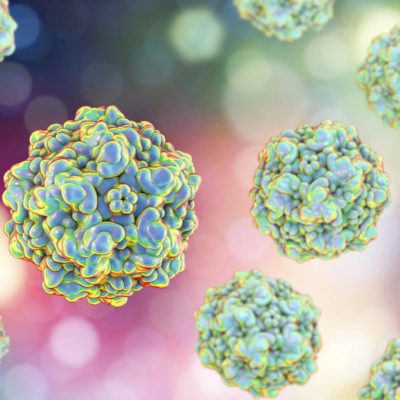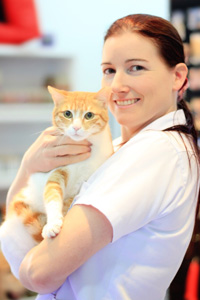April 14, 2021 by Dr. Sigrun Hackl

We hear increasing rumours and receive questions from concerned clients about this ‘new strain of parvovirus’ that is said to be going around in Dubai. As of now, we have no official confirmation of a new strain, and we have not seen any cases of parvovirus disease recently.
Saying that, Parvo IS a dangerous viral disease that effects both cats and dogs, and is to be taken seriously at all times. In a country that sees a lot of cultural mingling and travel, not only in the human society, it is best to be prepared.
As with the current Covid -19 situation, our best hope is a solid vaccination protection. Even if a new strain has emerged, we frequently see a degree of cross protection, especially in animals with good vaccination records. So what is the key to a ‘good record’?
The most important part of a vaccination is the early vaccination in the puppy / kitten, as this sets the course for the future protection. The very first vaccination in the animals life only ALERTS the immune system, like saying, ‘Hey, there is something out there!’. When this vaccination is repeated after a SHORT interval, the immune systems makes the connection. Like saying, ‘Hey, this sh… keeps coming back?! What is this? I better remember it!’.
And that is exactly what we need it to do. To remember how to fight this virus. To create what we call ‘memory cells’. Ultimately, the creation of memory cells is the foundation of the solid and lasting protection.
So how do we best get this memory to be created?
We ensure that the first and second vaccination are given at an interval of minimum two weeks, and maximum 4 weeks, so that the immune system understands that ‘this keeps coming back’.
We should also ensure that the puppy / kitten is old enough to have an immune system that is able to create this response. Therefore the most recent recommendations regarding the vaccinations of puppies and kittens say that we should carry on (repeating the shots) until they are 16 weeks of age.
The next vaccinations are due one year later, to again remind the immune system that ‘this is still out there’, and it needs to keep up the memory – and with that, the protection. With this solid foundation, we have a good chance for solid protection. However, if your adult dog has not had a vaccination in over a year, better get that updated now to ensure a strong protection right now.
So much for precautions. What is the best approach to an outbreak of diarrhoea in the dog population? Separate sick dogs until they no longer show signs. Clean and disinfect thoroughly. Be aware that especially Parvovirus is particularly resistant to disinfection, and only few products and long exposure time of the disinfectant (20 minutes) truly gets rid of the contamination. Thorough cleaning with soap and water, as well as exposure to UV light, are our best friends in this case, to reduce the viral load prior to the disinfection. If your dogs is having diarrhoea with blood, or appears unusually quiet and listless, better get them checked out early to catch the early stages of the disease.
Please be aware that parvovirus is closely related to panleukopenia virus in cats, and that transmission between the two species is possible. So keep an eye on your cats as well as your dogs.

Veterinary Surgeon

Be the first to know about exciting promotions, special discounts, and essential updates.
This website uses cookies to ensure you get the best experience on our website.